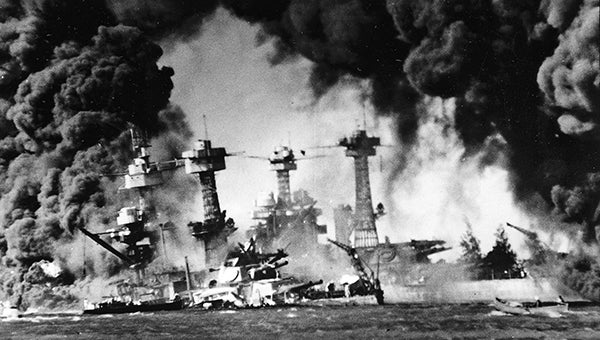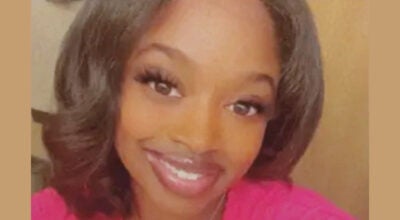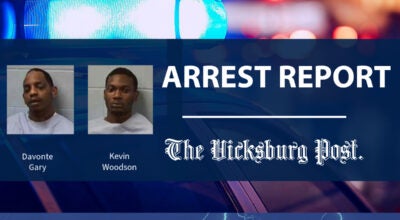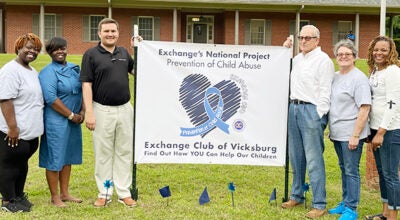75 years later, residents remember the emotions of the attack on Pearl Harbor
Published 10:10 am Wednesday, December 7, 2016

- Battleship USS West Virginia sunk and burning at Pearl Harbor on Dec. 7, 1941. In background is the battleship USS Tennessee.
For Vicksburg, Dec. 7, 1941, like it did across the U.S., began as a quiet day. /// Many people across the country were either going to church or involved in some other pursuit. Some people followed the age-old practice sleeping in late. /// But by mid-afternoon, the serene Sunday that began so peacefully in the morning was shattered by news of a surprise attack on the U.S. Pacific fleet by Japanese warplanes.
America would never be the same again, and people who heard the news forever remembered where they were that day, including several Vicksburg residents who shared their stories of where they were and what they were doing when the Japanese attacked.
“I was at City Park,” said David Speyerer. “A friend and myself were playing and shooting firecrackers, and we heard about Pearl Harbor being bombed and attacked. We had no idea where Pearl Harbor was. We had to go back home to find the location of Pearl Harbor. We didn’t know it was in Hawaii.”
After the initial reports on the attack, he said, the family radio was full of news “and everyone was gathered around the radio. I was about 11 years old. You never forget an event like that; you always remember where you were. It was kind of a scary thing for a kid. You didn’t understand all the implications of war.”
“A lot of things go through your mind, you worry what’s going to happen to your family. I had four brothers, and three of them ended up going in the service. I was so young, I didn’t realize the consequences of what was going to happen. I had brother who was in the National Guard, and he went in the very beginning, then I had two other brothers who were drafted.”
Betty Bullard was in Washington, D.C., where her father was stationed with the U.S. Army.
Her uncle, J.W. Bunkley was captain of the battleship California, which was stationed at Pearl Harbor and hit multiple times by Japanese bombs.
“My uncle Bunk and my aunt were on the terrace of the Hala Kalani Hotel, and they heard some engines and they looked up and there, just literally on the table with them were the planes of the Japanese,” Bullard said, adding her uncle ran to his Jeep and drove to Pearl Harbor, where he took command of his ship, which later beached near one side of the harbor’s channel.
Her aunt Sally, she said, was extremely diabetic, “And they got her out of there immediately and she came to Washington. We had a big to-do; a big lunch at a hotel for her. It wasn’t like this was tragedy had occurred, but it was a huge heroism and everyone was hugely proud.”
Bullard said she doesn’t remember her family checking up on her uncle, but said, “We don’t realize how much faster communications are. You know it as it’s happening. It’s not a case of waiting.
Lawrence Muirhead, who was also 11, remembered he was in his home when he heard the news.
“I thought, ‘We got caught with our britches down again,’ because that’s what really happened,” he said.
George Cronia was watching a movie.
“I was 15 years old. They turned the lights on the stage and made the announcement that Pearl Harbor had been invaded by Japan and there was a lot of damage, and the show was over,” he said. “I walked home from the theater on Washington Street and I was wanting to do something, but as 15-year-old, what can you do.”
Once he graduated from Carr Central High School, he did something.
“I tried to join the Marines, but they wouldn’t let me because I was colorblind,” he said. “So I applied for the draft while I was working with Corps of Engineers in Arkansas. When I returned to Vicksburg, I went to the draft board and told them, ‘Put me in the next bunch. I’m ready.’”
Lucius Dabney Jr., then an 11th-grader at Carr Central, was on his way to Port Gibson with his grandparents to eat lunch at a Cafe they liked.
“We had gone to early church, and when we got to Port Gibson — I think while we were there — we heard the Japanese had bombed Pearl Harbor,” he said. “I said, we’re in the war.
What’s so interesting is the Italians and the Germans declared war on us. They did that about a week later.”
He said hearing the news was not shocking, because of his reading history and because his father had been in World War I, “And he told me about it. It came as more of a ‘we’ll get ‘em,’ and sometimes looking back, I wonder why we weren’t in it sooner. When I heard about the attack, I told myself, ‘You owe your country a defense.’
“Word got around that the Japanese were pledged to die for the emperor, and everybody was saying, ‘We need to help them do that.’”
Dabney went to Virginia Military Institute after high school to study electrical engineering, and was drafted after his first year.
He went to France, Belgium, Holland and Brunswick, Germany, as a member of the 310th Signal Operations Batallion.
He quoted an English author who wrote a history of World War II.
“He called the Japanese attack just exactly what it should have been called. He called it an act of low cunning and incredible stupidity.”






